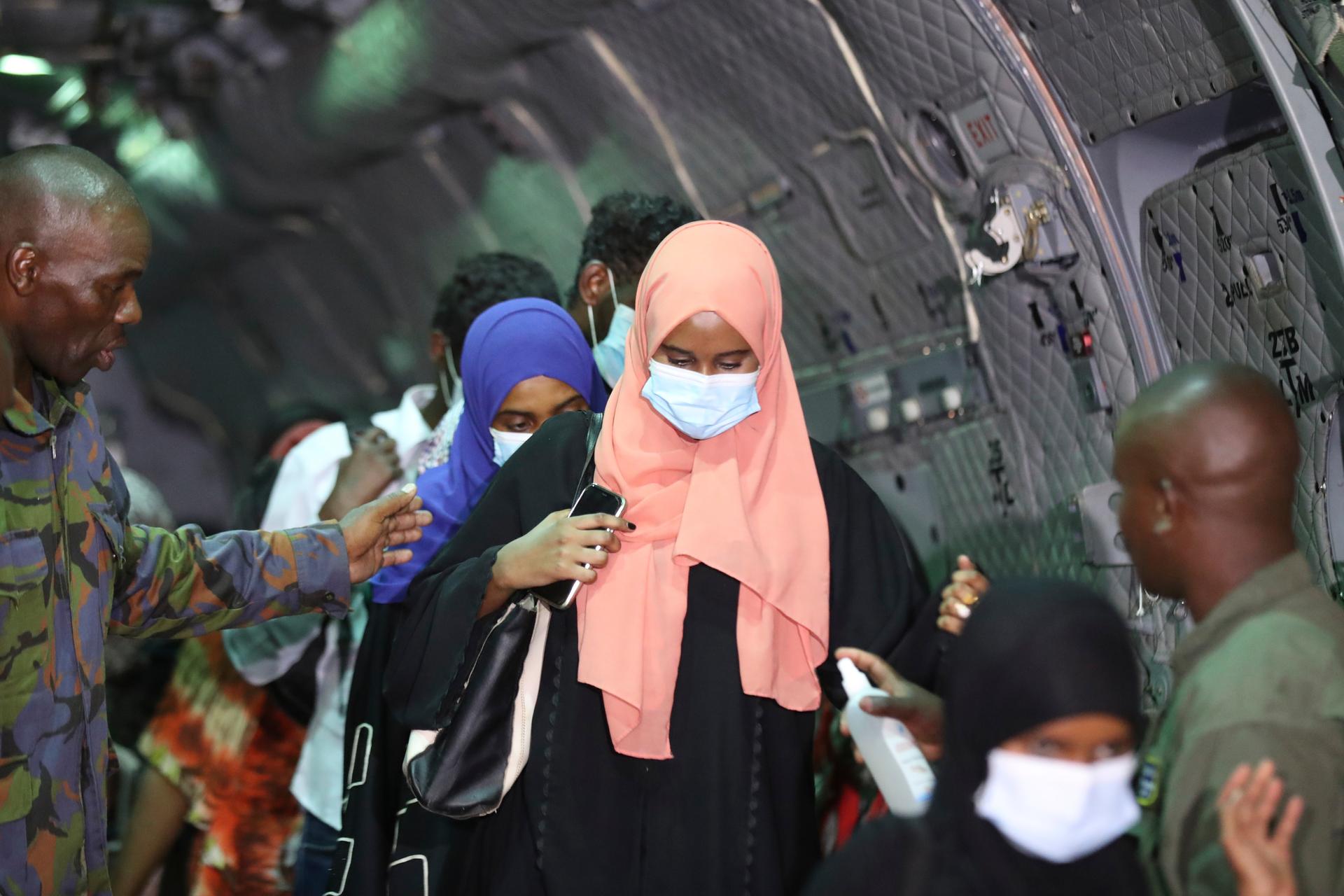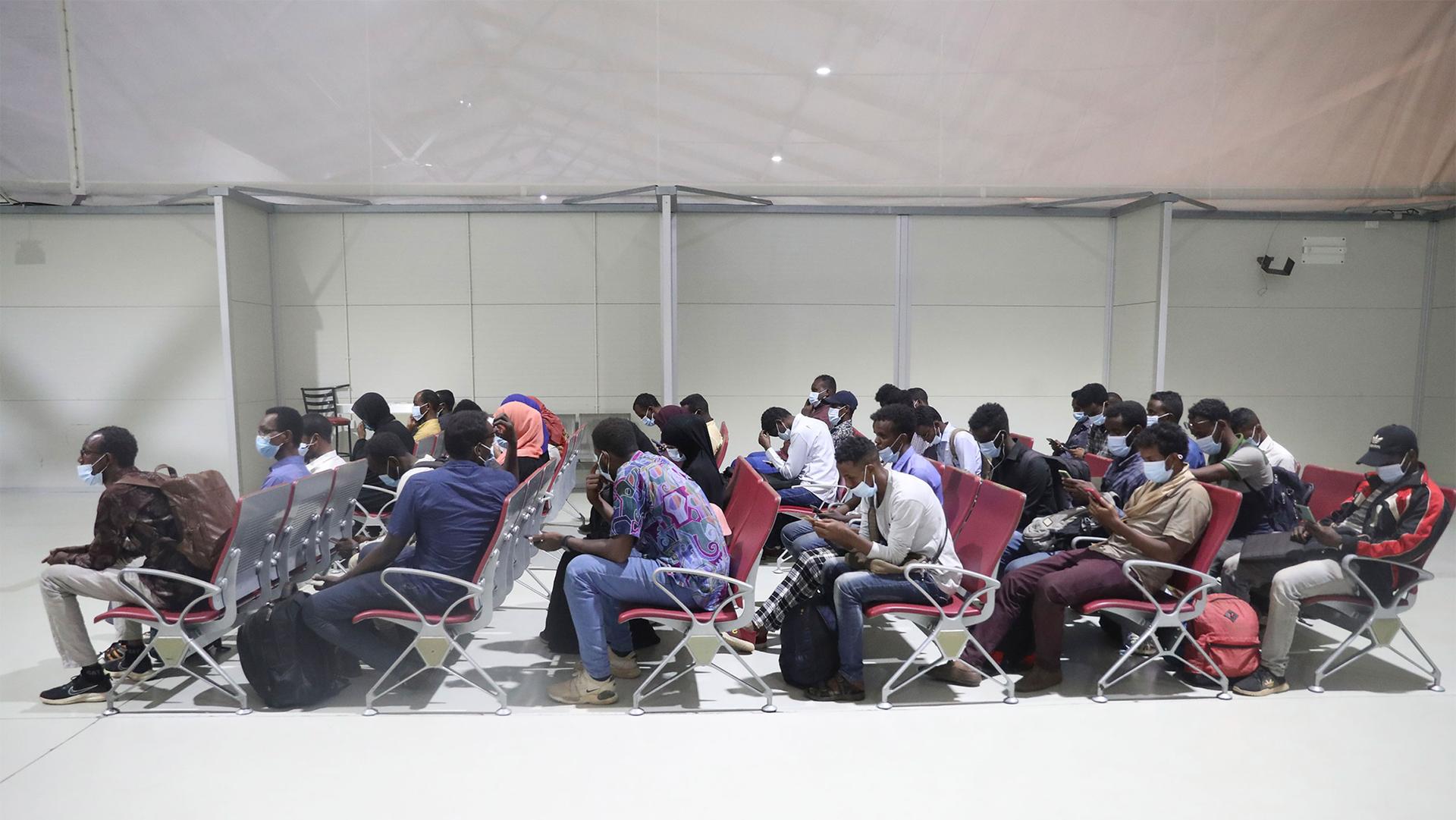On a warm evening at an art gallery in Kenya, people displaced by the ongoing conflict in Sudan dance and clap to the familiar beats of a Sudanese band.
For musician Kamal Ramadan, who goes by the stage name GeneralKD Black Power, it was a welcome relief from months of violence and despair.
“It reminds me of home,” Ramadan said. “There’s some friends, I just met them here. We scattered in Khartoum during the war.”
More than 10 million people have been displaced by a war that began last April between two competing generals — from the Sudanese Armed Forces (the country’s military) and the Rapid Support Forces (RSF) paramilitary group.
Like Ramadan, many people have fled to nearby African countries.
After waiting for months for travel documents, Ramadan and his family flew to Uganda and later took a bus to Kenya, arriving about a month ago.
“Every day, people keep coming from Sudan. They are running from war.” he said. “The number is increasing every day.”
Still the majority of Sudanese remain displaced within Sudan, under the threat of indiscriminate bombings, ethnic violence and now looming famine.
“When I talk and ask about my family in Omdurman, they say, ‘these people are suffering [at] the hands of both sides, [at] the hands of the RSF and the hands of the army,” Ramadan said.

International mediation
There have been several, often disjointed, efforts by different international players to mediate the conflict.
In recent weeks and months, there have been efforts by the African Union and the regional organization IGAD to bring the warring generals together.
Ramadan hopes African leaders will make a difference.
“…Sudan belongs to Africa. If there is no peace in Sudan, it is as if there is no peace in Africa.”
“Now, it would be good for all the African leaders to work very hard to make sure there is peace in Africa. Because Sudan belongs to Africa. If there is no peace in Sudan, it is as if there is no peace in Africa.”
But so far, those efforts have failed.
Alan Boswell, Horn of Africa Director for the International Crisis Group, said that part of the problem has been too much competition and a disagreement between African leaders about how to handle this crisis.
He added that African engagement alone will not be enough to end this war.
“Even though African heads of state are willing to bring these two together at a head-of-state level, which is very important protocol-wise, they have very little leverage over the warring parties themselves.”
That leverage will have to come from Arab states, he argued. Like Egypt, which is said to be backing the Sudanese Armed Forces, and the UAE, which is alleged to be sending arms to the RSF.
“What’s been needed is a very high-level push that somehow converges the leverage the Arab side has with the political and convening power the African side has,” Boswell explained.
“That just hasn’t happened. The connective tissue isn’t there and the US hasn’t played that role.”
The United States has been criticized, both internally and externally, for not doing enough to end the crisis.
“The US has basically approached this as just a regular African crisis rather than the massive collapse of a country that sits at the border of the African and Arab worlds, which requires a much more high-level response.”
At a virtual press briefing this week, The World asked Assistant Secretary of State for African Affairs Molly Phee about the lack of US engagement in Sudan.
She replied that the United States “remains intensely concerned and engaged in multiple ways to try and promote a ceasefire and a transfer to civilian rule.”
Phee said there were no new announcements, however, about the appointment of a US special envoy to Sudan — something that’s been requested by members of Congress.
As the war drags on, experts say Sudan is collapsing into a failed state.
This has left many Sudanese wondering what will happen to their democratic aspirations, which drove millions of people to the streets in massive protests over the years, and led to the ousting of dictator Omar Al-Bashir.
For musician Kamal Ramadan, he still wants to see a realization of those dreams.
“If they stop the war, we as civilians, will [be able to] start again. We will start going to the street,” he said. “We will start calling for unity, we will start calling for a democratic and secular state that will accept any religion and everyone.”
If that doesn’t happen, Ramadan said that he would rather stay in Kenya than return to an undemocratic Sudan.
Related: War in Sudan enters 9th month
